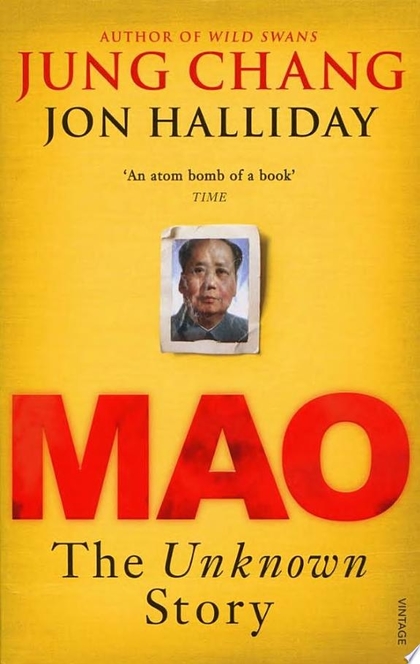Mao: The Unknown Story
Updated:
7 Sep 2020
The most authoritative life of Mao ever written, by the bestselling author of Wild Swans, Jung Chang and her husband, historian Jon Halliday.Based on a decade of research, and on interviews with many of Mao's close circle in China who have never talked before, and with virtually everyone outside China who had significant dealings with him, this is the most authoritative life of Mao ever written. It is full of startling revelations, exploding the myth of the Long March, and showing a completely unknown Mao: he was not driven by idealism or ideology; his intimate and intricate relationship with Stalin went back to the 1920s, ultimately bringing him to power; he welcomed Japanese occupation of much of China; and he schemed, poisoned and blackmailed to get his way. After Mao conquered China in 1949, his secret goal was to dominate the world. In chasing this dream he caused the deaths of 38 million people in the greatest famine in history. In all, well over 70 million Chinese perished under Mao's rule, in peacetime. Combining meticulous history with the story-telling style of Wild Swans, this biography makes immediate Mao's roller-coaster life, as he intrigued and fought every step of the way to force through his unpopular decisions. Mao's character and the enormity of his behaviour towards his wives, mistresses and children are unveiled for the first time. This is an entirely fresh look at Mao in both content and approach. It will astonish historians and the general reader alike. ‘This a bombshell of a book’, Chris Patten, The Times‘The first great political biography of the twenty-first century’ Spectator




